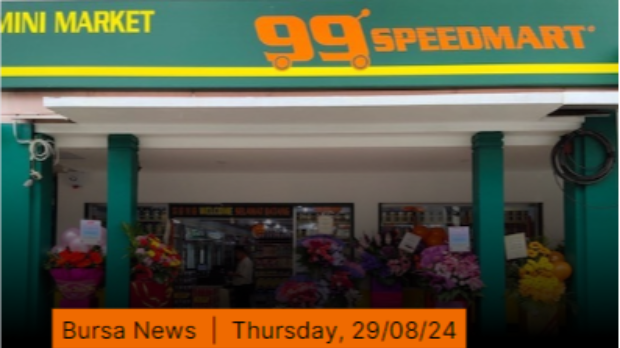Economists question effectiveness of RM100 e-wallet credit disbursement
savemalaysia
Publish date: Thu, 30 Nov 2023, 01:27 PM
KUALA LUMPUR: Economists have criticised the government's RM100 e-wallet credit disbursement, asserting it merely boosts e-wallet commercial providers and risks inflation.
Malaysian University of Science and Technology's economic professor, Geoffrey Williams, said the e-wallet scheme is not an income support scheme intended to increase public spending power or help in social support but more to encourage them to sign-up and use e-wallets from the preferred providers.
The e-wallet, he said, may later be used to distribute cash transfers using the Central Database Hub.
"The income level of RM100,000 per year is very high which tells us that this is not an income support scheme, it is a sign-up scheme.
"The restriction to Malaysians tells us that this is a scheme to exclude foreigners from possible income transfers later on.
"It is not designed to help the poor, or to help families or to help foreigners," he said when contacted.
He, however, questioned the government's spending of RM1 billion to promote commercial e-wallets. He believed that the government may disburse the public funds through MyKad instead.
"Indeed most people already have wallets so why give RM100 to everyone? This is to encourage the final groups to sign-up and to promote preferred vendors.
"If this was purely driven by consumer preference there would be no need for intervention.
"There is virtually no economic or social benefit in this project; it is purely to promote e-wallets through preferred commercial providers," he said.
Prime Minister Datuk Seri Anwar Ibrahim yesterday announced that the government will disburse about RM1 billion to 10 million Malaysians beginning Monday under the eMadani e-credit initiative.
Eligible Malaysians can apply for the one-off cash credit of RM100 via four e-wallet service providers namely MAE, Setel, ShopeePay and Touch 'n Go.
The initiative, Anwar said, was aimed at easing the people's burden as they prepare for their children's new school term next year and celebrate the year-end festive season.
Institute for Democracy and Economic Affairs (Ideas) senior fellow Carmelo Ferlito said the money injections could be ineffective and potentially lead to inflation, similar to what we experienced with the past one-off cash disbursement.
"It is not just a matter of RM100 being a small amount overall. But what is more important is how the move is financed.
"It can be ineffective at the micro level (small or individual scale), but quite expensive at the aggregate level (larger scale).
"How is it financed? Usually, money injections are an illusion, because the creation of money increases money into circulation therefore diminishing the real value of that money," he said.
He believed that there were no short-term measures to improve public spending other than promoting growth through pro-market (good policies and approaches) and business-friendly reforms."More growth means higher income for the people. Real income," he said.
Malaysians aged 21 and above who were recipients of Sumbangan Tunai Rahmah (STR), based on records up to Nov 7, would qualify for the e-credit.
Those from this age group who earn an annual income of RM100,000 and below based on the Inland Revenue Board's (IRB) record as at July 15, 2023, will also qualify for the e-credit.
Eligible Malaysians can apply for the one-off cash credit of RM100 via four e-wallet service providers.
The initiative is made possible via the Madani Economy Framework, which was announced in July.
https://www.nst.com.my/news/nation/2023/11/984799/economists-question-effectiveness-rm100-e-wallet-credit-disbursement
More articles on save malaysia!
Created by savemalaysia | Aug 31, 2024
Created by savemalaysia | Aug 31, 2024
Created by savemalaysia | Aug 31, 2024
Created by savemalaysia | Aug 31, 2024
Created by savemalaysia | Aug 31, 2024
Created by savemalaysia | Aug 31, 2024
Created by savemalaysia | Aug 31, 2024












.png)








